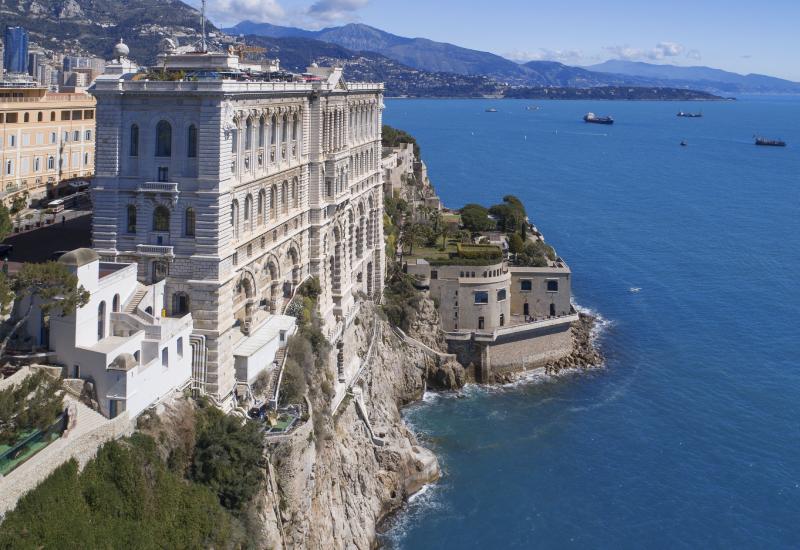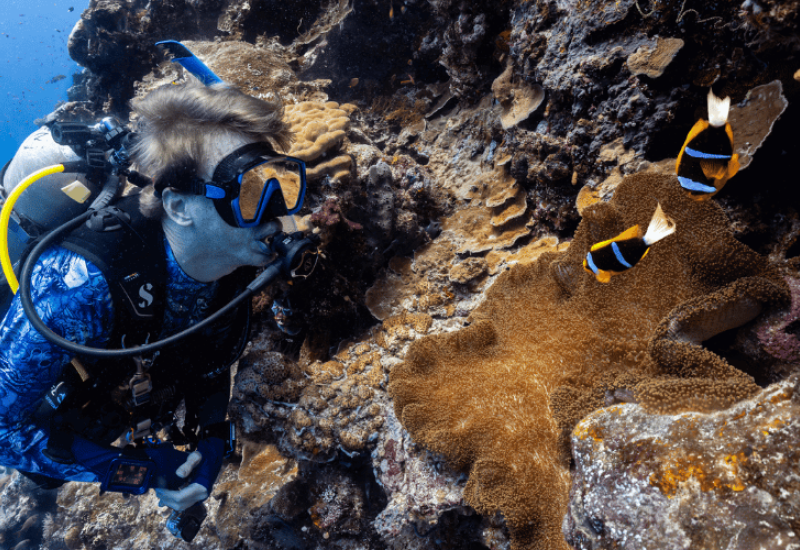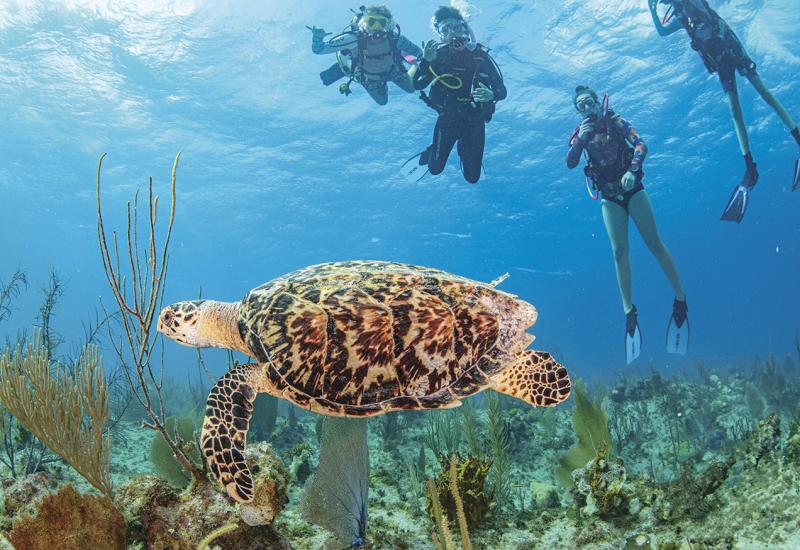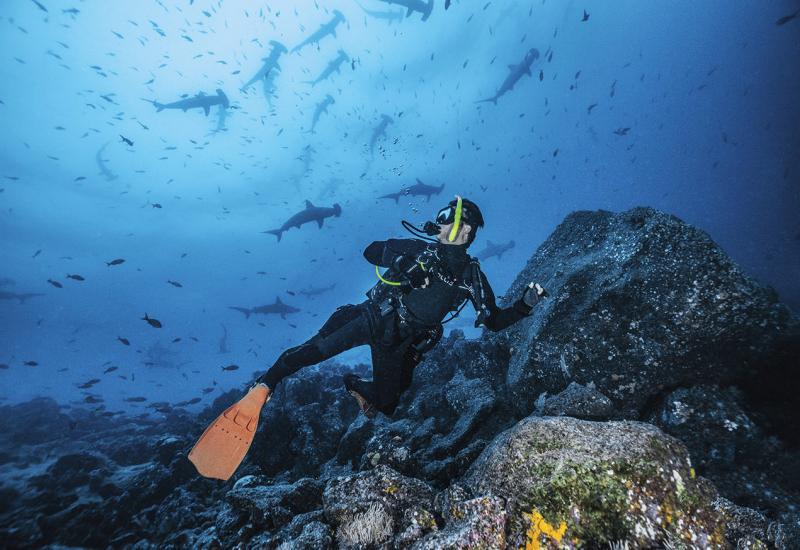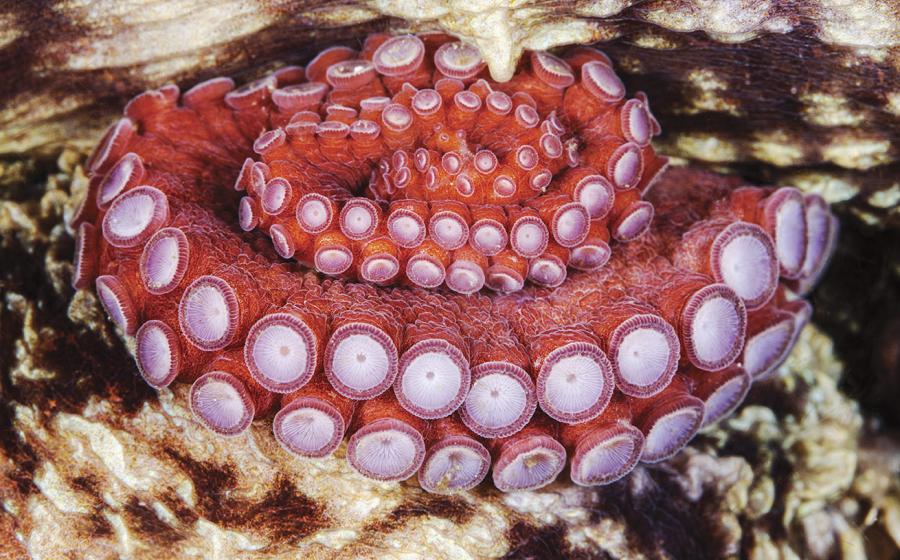How Returning to Diving is Helping Me Handle My Climate Grief
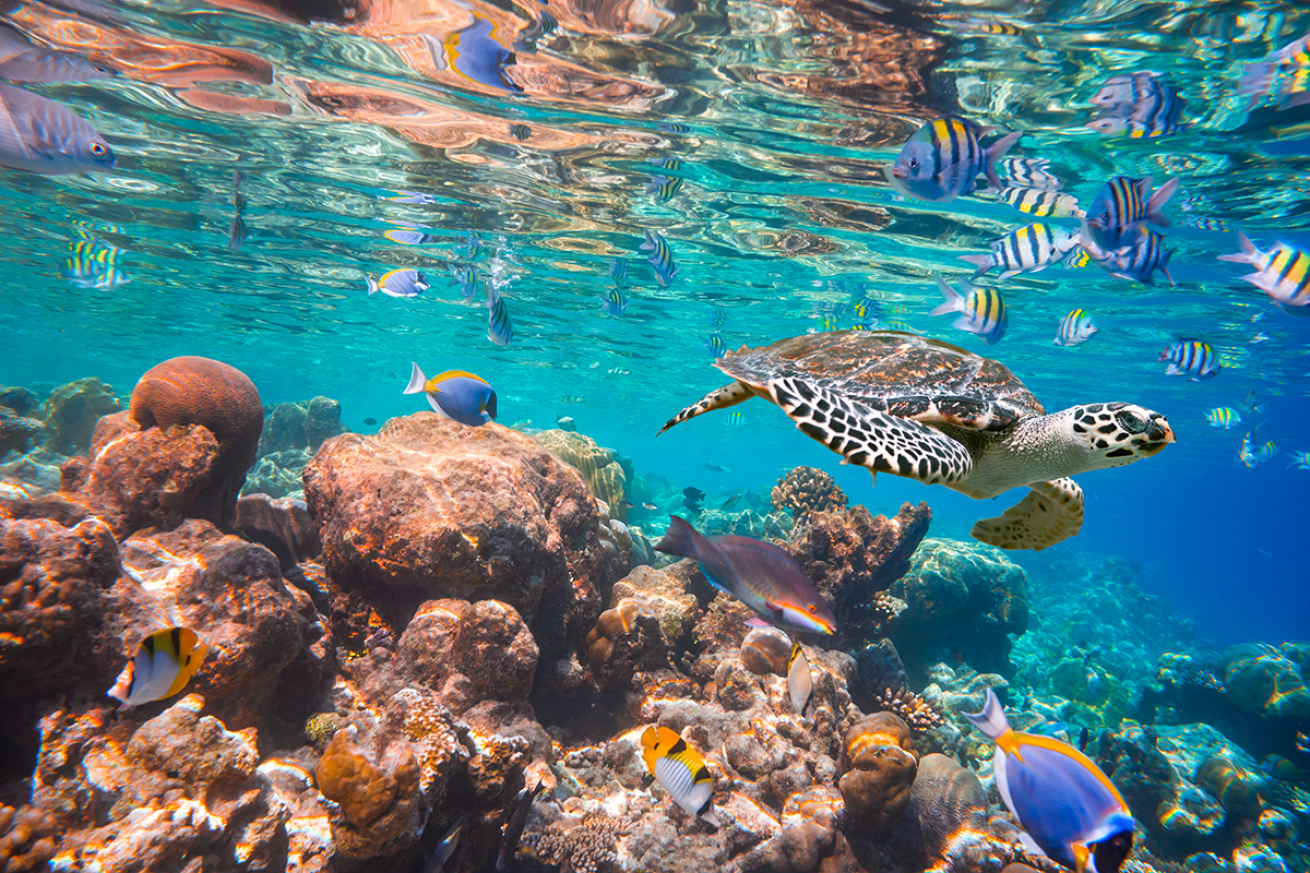
Andrey ArmyagovSealife abounds in the Maldives, a welcome sight in a fading ocean.
On a clear December day in the Cayman Islands, I completed my final open water PADI certification dive. The year was 2000. Down below, shafts of light had scrubbed shadows from the ocean floor revealing black angelfish edged in lemon yellow, barrel sponges evocative of ancient clay amphorae, and a solitary green sea turtle propelling itself towards a bustling reef. I felt giddy for future dives, eager to discover a hidden world.
I fulfilled the promise of my new PADI certification card, tucking it into my backpack whenever I traveled. I dove throughout the Caribbean, Indonesia, Fiji, Southeast Asia and Florida. This sport attracts all types: wreck enthusiasts, cave explorers, search and rescue specialists. I just wanted to fly through the water, soaking up the calm beauty of thriving corals and schooling fish spinning and darting in synchronicity.
Year after year, dive after dive, however, I noticed a gradual transformation unfolding across underwater landscapes. I noticed fewer fish. Broken coral littered sandy seabeds like bleached bones scattered by a ravenous giant. Conversations with dive masters confirmed my anecdotal observations. Coral was, in fact, bleaching, a term I’d come to understand with alarming clarity as stories of destructive storms and ocean heat waves spilled into mainstream news. When heat stressed, coral expels the colorful algae that feed it; they eventually starve and die.
In 2017, on a dive boat in St. Kitts, I asked the divemaster about local conditions. He turned to me, out of earshot of other guests. His cacao-colored eyes sunk, his neck drooping as he shook his head. “I’d say 80 percent of our coral is gone,” he said quietly. “Damage from fishing boats, heat waves in the water, and two big storms are to blame,” he added.
I asked if he worried about the state of the scuba industry. “I really don’t know what to think,” he said.
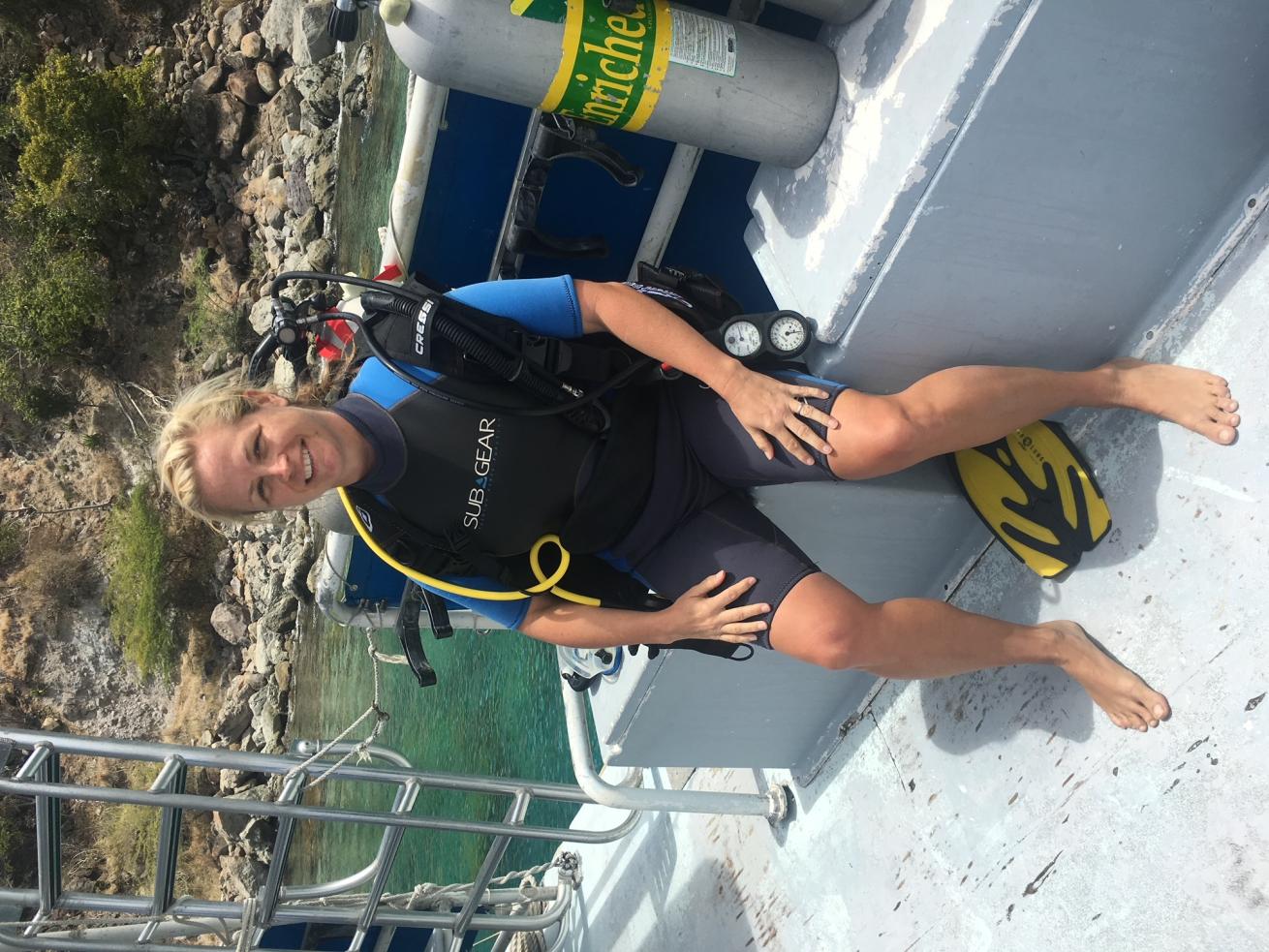
Courtesy ImageAuthor Lauren Mowery on a dive boat in St. Kitts where she received unfortunate news from her divemaster.
Back in New York, I interviewed Dr. Drew Richardson, President and CEO of PADI Worldwide, for a Forbes article on the future of the sport. “My life philosophy is to remain optimistic and focused on a ‘future hope,’” he said. “In my mind, there is no other option. Hope is the anchor to the soul. The danger is that we lose hope, or we feel like there’s nothing to be done.”
And yet, a growing angst gnawed at my subconscious. Soon, it would slip into my daily thoughts. A few years later, it would have a name.
Though a complex concept, eco-anxiety can be summarized as a chronic fear of environmental doom. Climate grief, while similar, spans feelings of loss and mourning related to environmental destruction from human behavior. Every year, the news worsens. Ocean acidification, plastic pollution, the heat Blob. What’s happened and what’s coming, past and future. My grief grew with it all.
It manifested in me as a sad malaise, not crippling fear. I still lived my life, perhaps even more than I would have, the need to experience life’s offerings sharpened by my sense of impending doom. As much as I could, I tried to remain in the present moment. I read the words of Eckhart Tolle in The Power of Now—“People don’t realize that now is all there ever is; there is no past or future except as memory or anticipation in your mind.”—and tried to live it.
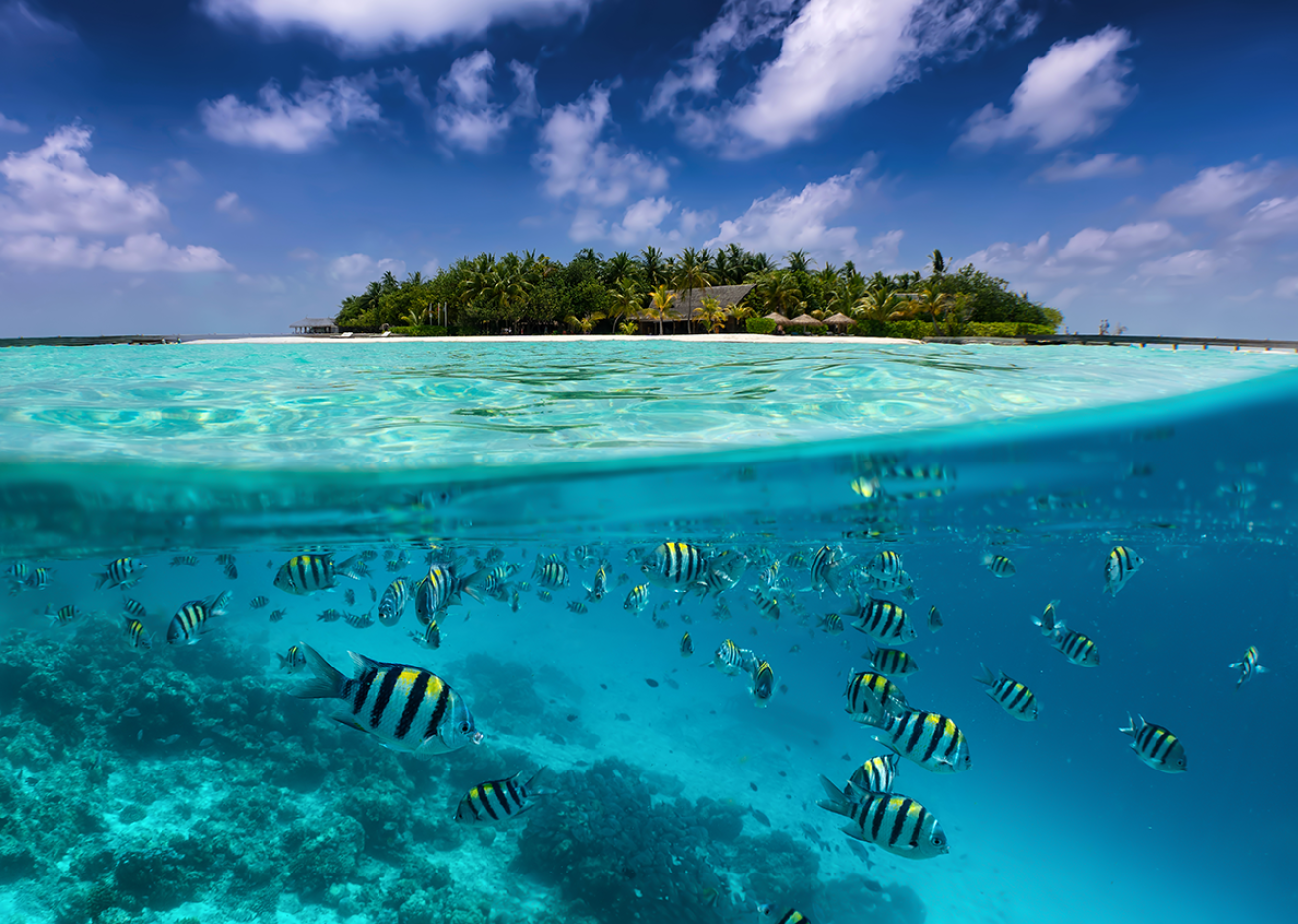
Sven HanscheThe Maldives world-famous for its biodiversity and blue-clear viz.
It was in this frame of mind that I visited the Maldives this July. I had wanted to see the famous ombré of Maldivian blue stretching from sugar beaches to the deepest ocean, so I went.
Southwest of India, the country’s 1,192 islands form the world’s lowest lying nation, with the highest natural elevation peaking at 7.5 feet above sea level. Headlines positing floating cities and relocating citizenry as solutions for a sinking country dominated the news, intermingled with reports of the leasing or selling far-flung islands to deep-pocketed hotel investors to raise cash for the efforts.
I didn’t plan to dive—until an underwater wine tasting sparked the idea.
Located on the Baa Atoll in a UNESCO Biosphere Reserve, Anantara Kihavah Maldives sits on a lush island ringed with lively reef, the remnants of an ancient volcano. SEA, the hotel’s underwater glass restaurant, offers a spectacular view.
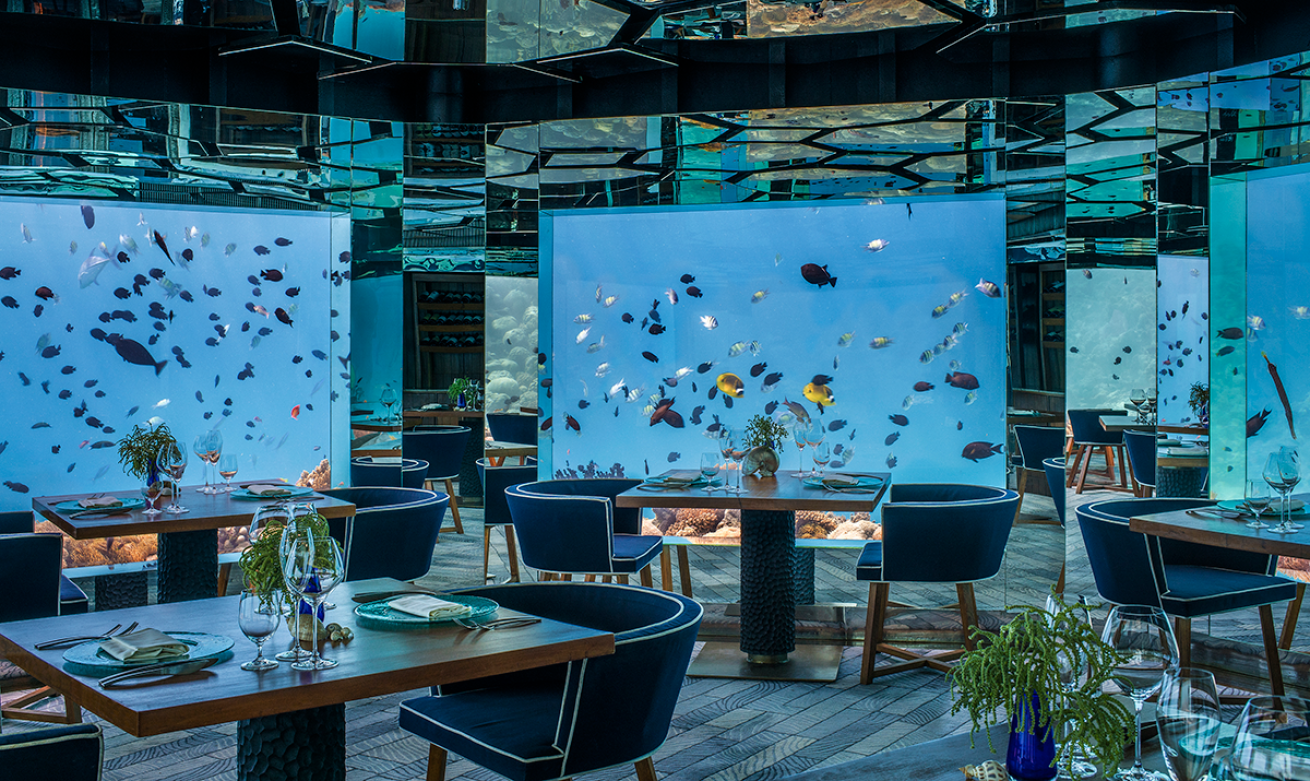
Anantara KihavahSurrounded by beautiful sea life, the underwater restaurant SEA lies in the Anantara Kihavah Maldives hotel.
Invited to taste wines with the sommelier, I descended into a glittering hexagon cast in moonlight blue. A blacktip reef shark shimmied past a mottled grouper hanging in quiet suspension. Between sips of Austrian Chardonnay and Argentine Malbec, my attention turned, transfixed, to the ebb of sea life. “Can you snorkel on this reef?” I asked. “Absolutely,” said the general manager, who had joined our group. “I go every morning.”
The next day, I borrowed a mask and fins and swam out to the reef wall. The thrill of snorkeling through living breathing color rushed back. That afternoon, I booked a boat trip out to Hanifaru Bay to snorkel with a squadron of manta rays. The Maldives has the largest known population of manta rays in the world—though, like many ocean creatures, they face population decline.
I jumped in the iridescent water and flutter kicked to the site. Within seconds, a half dozen graceful sea angels glided below, filter feeding through enormous mouths. The magic of the moment cemented my decision. I’d book a dive at the next resort.
At the LUX * South Ari Atoll dive shop, I got fitted for a wetsuit and gear. With my flight schedule, I’d have time for one dive. Dark clouds unleashed heavy rain as the boat headed out. Without a moment to ponder the symbolism, the dive master beckoned us forward. “Let’s go!” he mouthed, giving the thumbs down for descent.
Below the surface, I came alive. My breathing calmed into a slow rhythm, settling my buoyancy and melting my anxiety into the scenery. Swarms of little fish darted between swaying coral; three spotted eagle rays sailed off into the abyss. The Maldives confirmed for me that ocean life still existed, could be enjoyed and needed protection.
To deal with environmental angst, psychologists recommend several coping techniques: spending time in nature, joining a community, sharing feelings, and taking action, even in small meaningful ways. For me, that means writing to support ocean causes while bringing awareness to the toll of climate change on mental health. And, of course, diving again. I’ve already booked an Advanced Open Water certification course in Fiji this fall.
Are you ready to step up, help save the ocean, and #LiveUnfiltered at the same time? Sign up for a PADI Open Water Diver course now.

